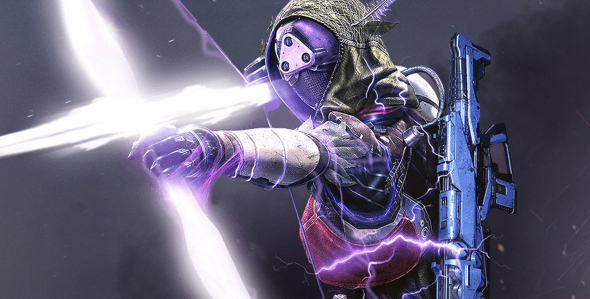
Bungie says it is taking steps “to keep our teams healthier” following a year of Destiny 2 content development that “was starting to wear people down.”
That messaging comes from Bungie Creative Director Luke Smith, who shared the concerns as part of a massive “Director’s Cut” community update this week. In the update, Smith praised the team at Bungie for recently avoiding Destiny‘s history of post-launch “content droughts” and for doing “a great job of providing stuff to do, items to chase, growing fat with strength, et cetera.”
At the same time, though, providing the kind of content promised by Bungie’s Annual Pass system “was harder on the team than we anticipated,” according to Smith:
The scope of what we delivered, the pace that we delivered it, and the overall throughput for Annual Pass takes a toll on the Bungie team. I—and many others—had conversations throughout the year with team members—who had jumped from release to release—about the grind of working on Destiny. Working on the game was starting to wear people down. Here’s an example:
During the annual pass, we invented new, bespoke ways to earn rewards each season. Black Armory had its bounties, Season of the Drifter had the “Reckoning Machine,” Season of Opulence had its Chalice. Each of these mechanics—each with their own lessons—were valuable, but also put the team into an unsustainable development cycle. We needed to develop a more systemic, standardized set of mechanics for progression to keep our teams healthier.
We’re going to take this problem on in [the next year of Destiny 2].
Smith didn’t go into further detail on just how the Destiny team’s workload would be reduced going forward. But it’s not the first sign that Bungie has been scaling back the pace of updates for its workers’ benefit. Back in June, Smith said Bungie was delaying a patch to fix an in-game weapon by a month to help preserve the “work-life balance” of the development team.
Work smarter, not harder?
Those moves by Bungie reflect a small but growing trend of companies publicly saying they’re slowing game release schedules to avoid “crunch”—the widespread industry practice of requiring employees to work punishingly long hours to finish a game, sometimes for months on end.
In announcing a release date delay for Animal Crossing back in June, Nintendo of America President Doug Bowser told IGN that the decision came in part because of a “need to make sure that our employees have good work-life balance.” Apex Legends Executive Producer Drew McCoy said in April that while releasing frequent updates is a focus, “we want to maintain our culture as a development team and avoid crunch that can quickly lead to burnout or worse.” And Blizzard’s Mike Morhaime told Eurogamer last month that crunch “is not sustainable, and we need to find better ways of working,” even as he acknowledged it was key to the company’s formation and growth.
That kind of anti-crunch messaging is probably a good PR strategy, especially when fan anger over a game’s delay can quickly spiral to wholly unreasonable levels. But despite continuing reports of widespread crunch at companies like Epic Games, there seems to be a building consensus around the industry that pushing employees to burnout levels of work is not good for their bottom line in the long-term.
“I hear more and more publishers… rejecting crunch and saying, ‘That’s not how we operate,'” ESA president Michael Gallagher told Vice Games at E3. “And that is an attraction for the best and the brightest to see those opportunities and make those individual choices, to go to those companies.”
https://arstechnica.com/?p=1552291

